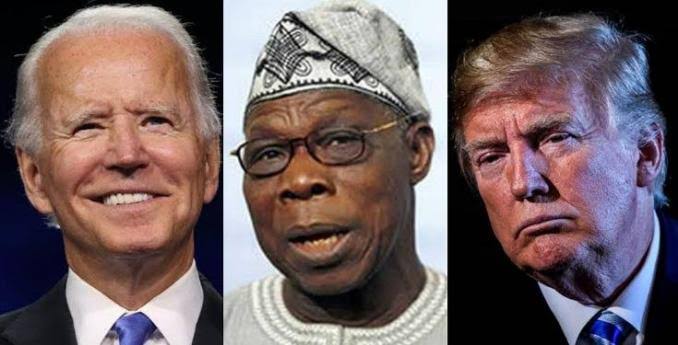Obasanjo Says Nigeria Once Commanded U.S. Respect, Responds to Trump’s Military Threat Remark
Former President Olusegun Obasanjo has reacted to a recent statement by U.S. President Donald Trump threatening possible military intervention in Nigeria, stating that during his time in office, the United States accorded Nigeria significant respect and recognized its leadership role in Africa.
Obasanjo spoke on Monday in Abeokuta, Ogun State, at the Presidential Youth Mentorship Retreat (6.0) organised by the Youth Development Centre of the Olusegun Obasanjo Presidential Library (OOPL). His remarks came amid ongoing reactions to Trump’s comment warning that the U.S. could consider deploying troops to Nigeria if the federal government failed to stop attacks on Christians by extremist groups.
While the Nigerian government has dismissed the U.S. president’s remarks as an oversimplification of the country’s security challenges, the comment has stirred nationwide debate.
Without mentioning Trump by name, Obasanjo said Nigeria’s international standing has declined over the years. He recalled a period when, under his leadership, the U.S. government consulted Nigeria on critical African matters, describing the country at the time as a major diplomatic force.
“When I was president and Head of State, three American presidents visited Nigeria,” he said. “The United States did not take decisions on Africa without informing us. Nigeria was considered the voice and power of Africa. What has changed?”
He referenced his close relationship with the late U.S. President Jimmy Carter, whom he described as a committed friend of Nigeria and the African continent.
Obasanjo said Nigeria was once regarded globally as a rising giant but gradually lost that standing until his administration sought to restore it. He lamented that the country’s current image no longer commands the same respect.
Trump’s comment, which centered on alleged religious persecution, has drawn criticism from Nigerian officials and political stakeholders who viewed it as unwarranted interference in internal affairs. The federal government maintains that insecurity in the country affects citizens across religious and ethnic lines.
The development continues to generate diplomatic debate as officials and analysts evaluate its implications for U.S.–Nigeria relations.


